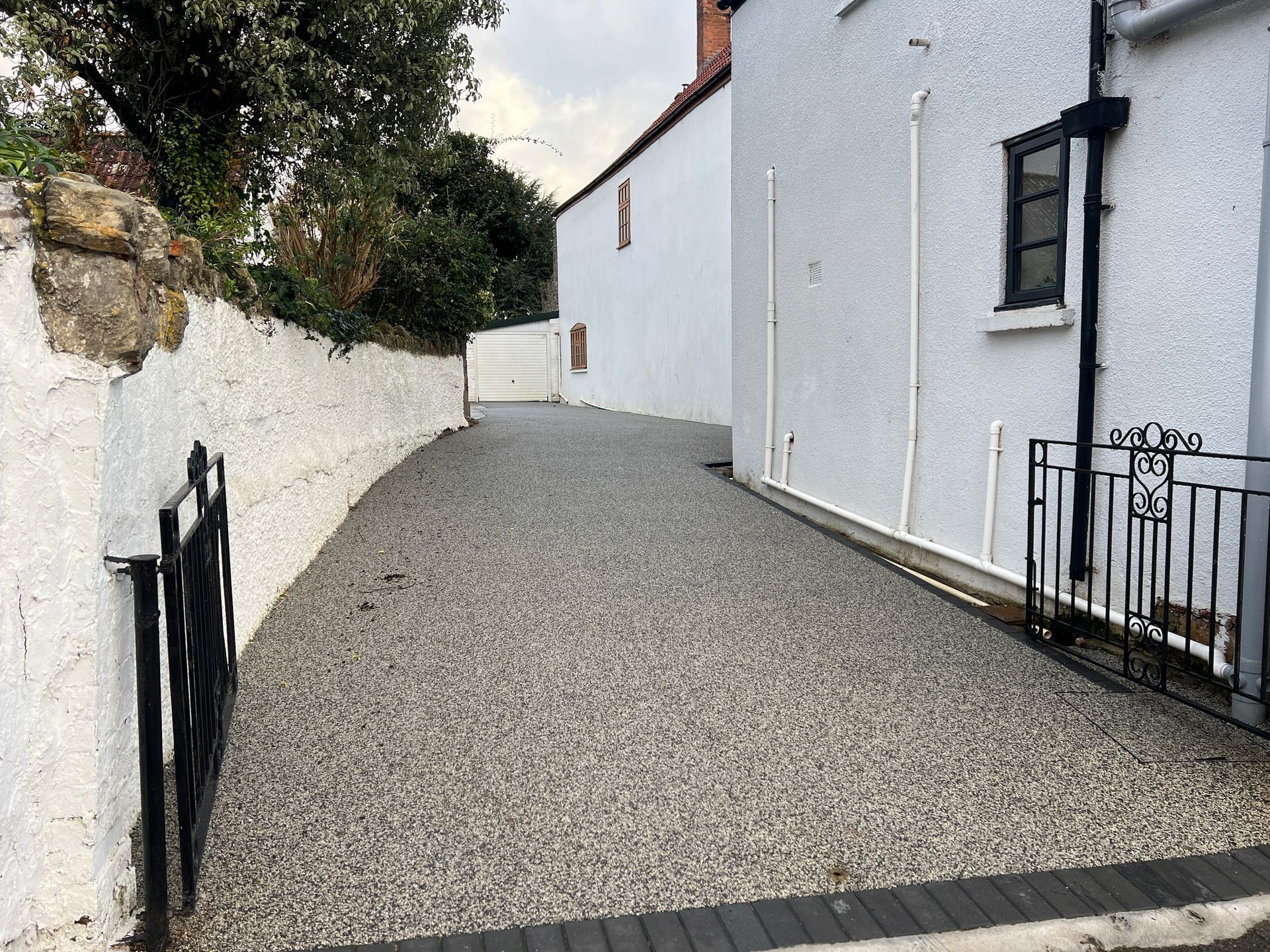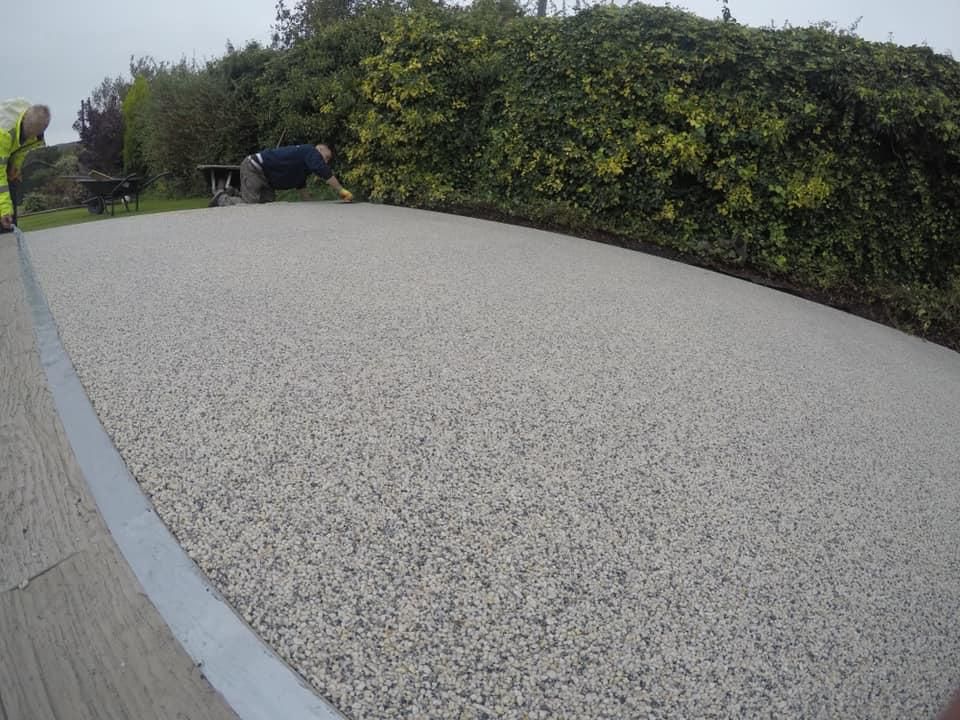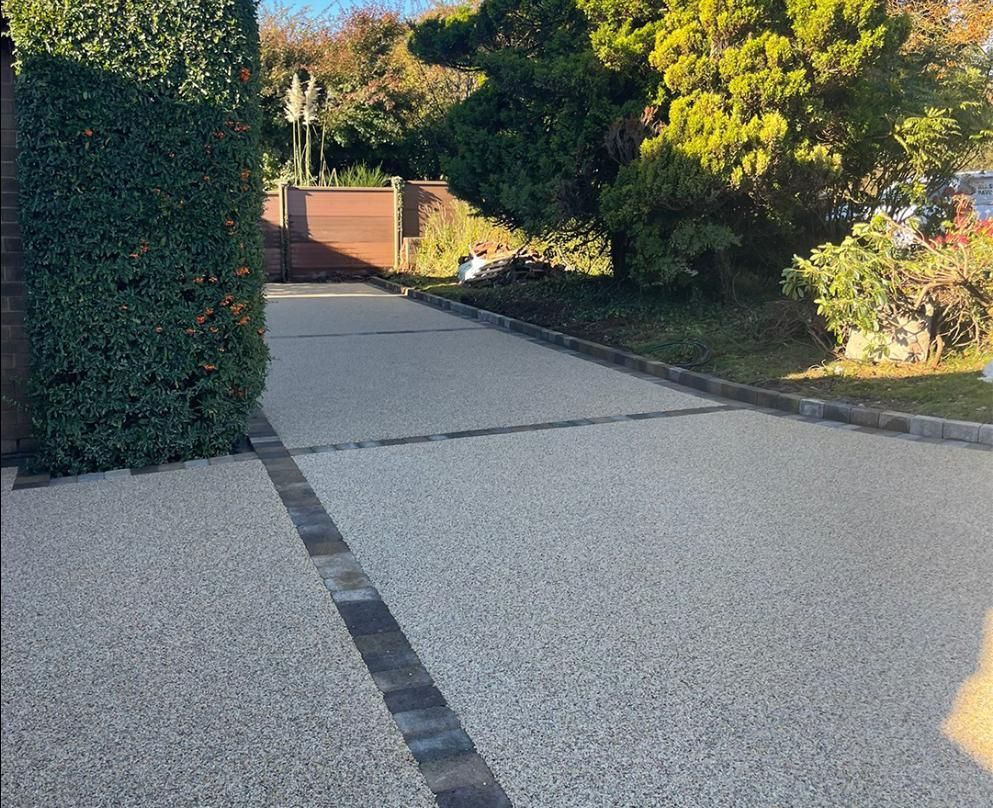What Is The Difference Between Resin Bound and Resin Bonded Driveways?
Resin Bound and Resin Bonded: How Big Is The Difference?
The durability, aesthetic appeal, and minimal maintenance needs of resin-bound and resin-bonded driveways have contributed to their increased popularity as driveway surfacing solutions. However, people commonly use both terms interchangeably. In this article, we'll compare resin bound and resin bonded driveways to help you decide which one is right for your home.
The primary distinction between these two kind of driveways is the amount of work put in beforehand. The resin and aggregates for a
resin-bound driveway would be mixed together, then the mixture would be evenly spread over the base that has been previously prepared. For
resin bonded surfaces, resin is applied to the prepared base, and then aggregates are laid on top to form a
resin-bonded driveway.
The Characteristics of Resin Bound Driveways
Resin-bound driveways are made by mixing aggregates (such gravel or crushed stone) with a transparent resin binder. Resin-bound driveways typically include the following characteristics:
A driveway made with resin is permeable, meaning water can drain through it. Because of this, they are a greener alternative that helps prevent flooding and surface water build-up.
The aggregate and resin mixture is trowelled or screeded onto a strong base to create a uniform surface. This gives the driveway an attractive, organic look.
Resin bound driveways are impervious to the deteriorating effects of time and traffic, and they require no routine maintenance. They can't be damaged by oil, sunlight, or cracking. They are also a great long term investment, as simple cleaning will keep them looking like new for a long time.
The Characteristics of Resin Bonded Driveways
Resin-bonded driveways are made by applying a layer of resin to an already-existing surface (such concrete or tarmac) and then scattering loose pebbles on top. Resin-bonded driveways have the following important features:
In contrast to resin bound driveways, which allow water to percolate through the surface, resin bonded drives are impermeable. Additional drainage methods may be required to prevent water from accumulating.
A
textured and
non-slip surface is achieved by scattering loose particles across a resin-coated base. Because of the
textured surface and
high grip it provides, resin-bonded driveways are a perfect choice for areas where
slip resistance is critical.
The Most Notable Differences Between Resin Bound and Resin Bonded
When deciding between a resin bound and a resin bonded driveway, it is important to consider the following factors.
When it comes to appearance, a resin bound driveway has a smooth and natural aspect, while a resin bonded driveway has a textured effect. Choose the one that works best with your home's style.
If you're concerned about sustainable drainage and want to lessen the amount of water that runs off the driveway, a resin-bound driveway is the best option.
Covering an
existing surface, both types of driveways can be installed directly over concrete or tarmac, eliminating the need for
costly and
time-consuming excavation.
Both types of driveways are
low-maintenance. Although,
resin bound drives may require less
regular cleaning due to their
smooth surface.
It's important to know the distinctions between a resin bound, and a resin bonded driveway before deciding which one is best for your home. Resin bound driveways are permeable, smooth, and durable, whereas resin bonded driveways have a textured finish that enhances pre-existing surfaces. Consider your preferences, budget, and specific requirements in order to pick the best option. Both resin bound and resin bonded driveways provide a long-lasting and visually appealing choice for sprucing up the entrance to your home.
You might also like
Resin Driveways Bristol




